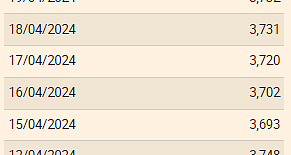humanity needs to make changes "quick" and "powerful" if you want global warming to stay within thresholds that are manageable. Was the warning that the IPCC, the group of scientists that radiografían climate change for the UN, launched a little over a month. And those changes must be aimed at sharp reductions of greenhouse gases immediately.
MORE INFORMATION The Government proposes to veto the sales of gasoline cars and diesel by 2040, the UN experts urge to take drastic action against climate changefossil fuels (such as gasoline and diesel) are in the crosshairs of the European Commission, the EU Parliament and some countries, within and outside Europe. The Ministry for the Ecological Transition of Spain prepares for the future climate change act, and among the measures it proposes, is to veto the sales of gasoline cars and diesel from 2040 onwards. In 2050, according to the estimates of that department, they should leave from circular cars that emit CO2.
Several countries, like United Kingdom or France, manage calendars similar. But 2040 is too late. At least, that is what emerges from the report on the EU developed by the organization Transport & Environment, a federation specializing in sustainable transportation that is formed by half a hundred european NGOS. "Europe has to sell his last car of internal combustion engine during the early years of the decade of 2030 to decarbonise transport by 2050 and achieve the objective of the Paris Agreement," says the federation.
the report highlights the importance of taking concrete measures to reduce use of the car as a weapon in the fight against climate change (and pollution). For example, increasing taxes on fossil fuels, to give precedence to car sharing or to create zones of restricted traffic in the cities. But the document warns that even with a "package of measures for demand reduction" would be Mobilbahis achieved, as a maximum, a reduction of the emissions of gases of greenhouse effect of the cars from 28% in 2050. Therefore, if Europe wants to comply with the Paris Agreement and with the recommendations of the IPCC will need to finish with the sales of vehicles of combustion in 2035 "at the latest".
"If we are to avoid dangerous climate change we need to change the electric car market much faster than what's proposed now," pointed Thomas Earl, analyst at Transport & Environment. In particular, the proposals on the table by the European Commission for 2025 and 2030 account for only 60% of the effort needed to comply with the Paris Agreement.
Miriam Zaitegui, an expert in climate change policy of the organization Ecodes, highlights that in the case of Spain, the date proposed by the Government in the draft climate change act is also "insufficient" and should be brought forward to 2035. However, the minister for the Ecological Transition, Teresa Ribera, has defended this Wednesday in the Congress that 2040 is a "good date".
tax PolicyThe report from Transport & Environment proposes a number of concrete measures to the leaders of the EU; for example, reform of the tax policies of national to "accelerate the transition" towards zero-emission vehicles. It would be to adopt policies similar to those that apply in Norway to match the cost of the electric cars and internal combustion. Or create a network-wide european electric vehicle charging, and enhance the industry of manufacturing of batteries in the EU, a business that now controls China.
Transport & Environment analyzes several alternatives of cars, which use hydrogen and biofuels. But he concludes that the more efficient alternative for the coming decades is that of electric cars.
The report highlights that, although in 2035 only sell passenger cars, zero-emission, the remaining fleet will be active and emitting millions of tons even in 2050. That is why measures will be required to "accelerate the renewal of the fleet." For example, limit the age of the car at the time of the circular, support plans for the withdrawal of older vehicles or the creation of areas of emission within cities.

 The Euribor today remains at 3.734%
The Euribor today remains at 3.734% Germany: the trial of an AfD leader, accused of chanting a Nazi slogan, resumes this Tuesday
Germany: the trial of an AfD leader, accused of chanting a Nazi slogan, resumes this Tuesday New York: at Columbia University, the anti-Semitic drift of pro-Palestinian demonstrations
New York: at Columbia University, the anti-Semitic drift of pro-Palestinian demonstrations What is Akila, the mission in which the Charles de Gaulle is participating under NATO command?
What is Akila, the mission in which the Charles de Gaulle is participating under NATO command? What High Blood Pressure Does to Your Body (And Why It Should Be Treated)
What High Blood Pressure Does to Your Body (And Why It Should Be Treated) Vaccination in France has progressed in 2023, rejoices Public Health France
Vaccination in France has progressed in 2023, rejoices Public Health France Food additives suspected of promoting cardiovascular diseases
Food additives suspected of promoting cardiovascular diseases “Even morphine doesn’t work”: Léane, 17, victim of the adverse effects of an antibiotic
“Even morphine doesn’t work”: Léane, 17, victim of the adverse effects of an antibiotic MEPs validate reform of EU budgetary rules
MEPs validate reform of EU budgetary rules “Public Transport Paris 2024”, the application for Olympic Games spectators, is available
“Public Transport Paris 2024”, the application for Olympic Games spectators, is available Spotify goes green in the first quarter and sees its number of paying subscribers increase
Spotify goes green in the first quarter and sees its number of paying subscribers increase Xavier Niel finalizes the sale of his shares in the Le Monde group to an independent fund
Xavier Niel finalizes the sale of his shares in the Le Monde group to an independent fund Owner of Blondie and Shakira catalogs in favor of $1.5 billion offer
Owner of Blondie and Shakira catalogs in favor of $1.5 billion offer Cher et Ozzy Osbourne rejoignent le Rock and Roll Hall of Fame
Cher et Ozzy Osbourne rejoignent le Rock and Roll Hall of Fame Three months before the Olympic Games, festivals and concert halls fear paying the price
Three months before the Olympic Games, festivals and concert halls fear paying the price With Brigitte Macron, Aya Nakamura sows new clues about her participation in the Olympics
With Brigitte Macron, Aya Nakamura sows new clues about her participation in the Olympics Skoda Kodiaq 2024: a 'beast' plug-in hybrid SUV
Skoda Kodiaq 2024: a 'beast' plug-in hybrid SUV Tesla launches a new Model Y with 600 km of autonomy at a "more accessible price"
Tesla launches a new Model Y with 600 km of autonomy at a "more accessible price" The 10 best-selling cars in March 2024 in Spain: sales fall due to Easter
The 10 best-selling cars in March 2024 in Spain: sales fall due to Easter A private jet company buys more than 100 flying cars
A private jet company buys more than 100 flying cars This is how housing prices have changed in Spain in the last decade
This is how housing prices have changed in Spain in the last decade The home mortgage firm drops 10% in January and interest soars to 3.46%
The home mortgage firm drops 10% in January and interest soars to 3.46% The jewel of the Rocío de Nagüeles urbanization: a dream villa in Marbella
The jewel of the Rocío de Nagüeles urbanization: a dream villa in Marbella Rental prices grow by 7.3% in February: where does it go up and where does it go down?
Rental prices grow by 7.3% in February: where does it go up and where does it go down? Europeans: “All those who claim that we don’t need Europe are liars”, criticizes Bayrou
Europeans: “All those who claim that we don’t need Europe are liars”, criticizes Bayrou With the promise of a “real burst of authority”, Gabriel Attal provokes the ire of the opposition
With the promise of a “real burst of authority”, Gabriel Attal provokes the ire of the opposition Europeans: the schedule of debates to follow between now and June 9
Europeans: the schedule of debates to follow between now and June 9 Europeans: “In France, there is a left and there is a right,” assures Bellamy
Europeans: “In France, there is a left and there is a right,” assures Bellamy These French cities that will boycott the World Cup in Qatar
These French cities that will boycott the World Cup in Qatar Serie A: Bologna surprises AS Rome in the race for the C1
Serie A: Bologna surprises AS Rome in the race for the C1 Serie A: Marcus Thuram king of Italy, end of the debate for the position of number 9 with the Blues?
Serie A: Marcus Thuram king of Italy, end of the debate for the position of number 9 with the Blues? Milan AC-Inter Milan: Thuram and Pavard impeccable, Hernandez helpless… The tops and flops of the derby
Milan AC-Inter Milan: Thuram and Pavard impeccable, Hernandez helpless… The tops and flops of the derby Ligue 2: Auxerre leader, Bordeaux in crisis, play-offs... 5 questions about an exciting end of the season
Ligue 2: Auxerre leader, Bordeaux in crisis, play-offs... 5 questions about an exciting end of the season


















